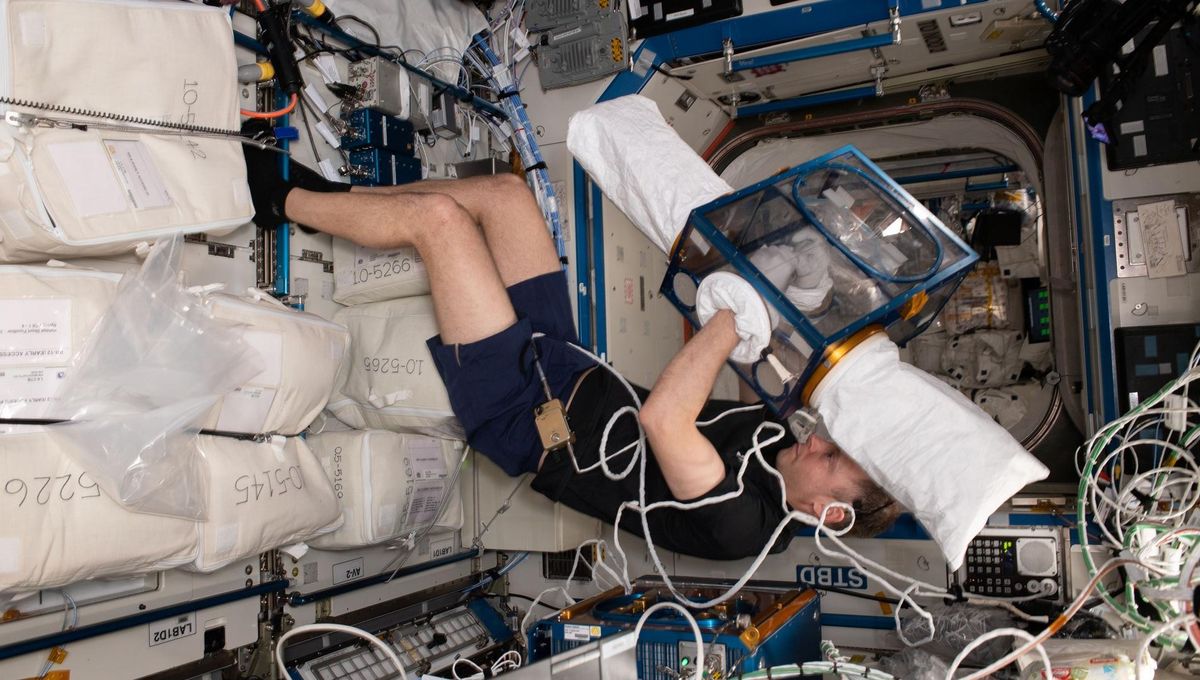
Space is hard is a recurring maxim, and it is particularly true of human bodies. Prolonged time in microgravity has a whole array of physiological effects, from losing blood cells to getting weaker bones. But where exactly that bone loss happens has remained unclear. Experiments on mice have provided some concrete evidence of the how as well as the possible effects of radiation on this.
ADVERTISEMENT
NASA has estimated that for every one month in space, the density of weight-bearing bones drops by at least 1 percent. This is a lot and it is accompanied by a loss of about 20 percent of muscle mass in less than two weeks. Understanding the details of how that works is necessary for healthier trips to space, especially far beyond Earth.
The new work has taken female mice into space to live on board the International Space Station (ISS) for 37 days and observed the growth of their bones. They compared them to controls on Earth both in regular vivarium cages and in an ISS Environmental simulator.
The team found that bone loss was not uniform, but it was specific to the sites that are loaded from weight and not sites that are loaded from muscle work. For example, the femurs of these mice in space showed more bone loss than the spines for example. The research suggests that this is just due to microgravity and there is no supporting evidence to suggest that it is the higher radiation environment.
The actual process by which the bone loses mass had been elucidated in previous experiments on medaka fish, also sent to the ISS, that microgravity skews the relationship between bone-forming osteoblasts and bone-degrading osteoclasts. In space, osteoclasts seem to be working overtime with that team of researchers finding that the space-bound fish had increased osteoclast activity and a significant reduction in bone mineral density.
This new work suggests the relationship doesn’t fall apart in every type of bone. Weight-loaded bones like the femur lose mass, some others stay the same, and there are even cases of mandibles and cranial bones getting denser. This might be due to the increased blood pressure in the upper part of the body, in the first few days in orbit – which makes the face swell, gives astronauts space headaches, and affects their sense of smell. This eventually goes away when the body starts getting rid of blood.
A paper on the mice study was published in the journal PLOS One.
Source Link: Something "Strange" Happened To Mice Who Lived On The ISS For 37 Days